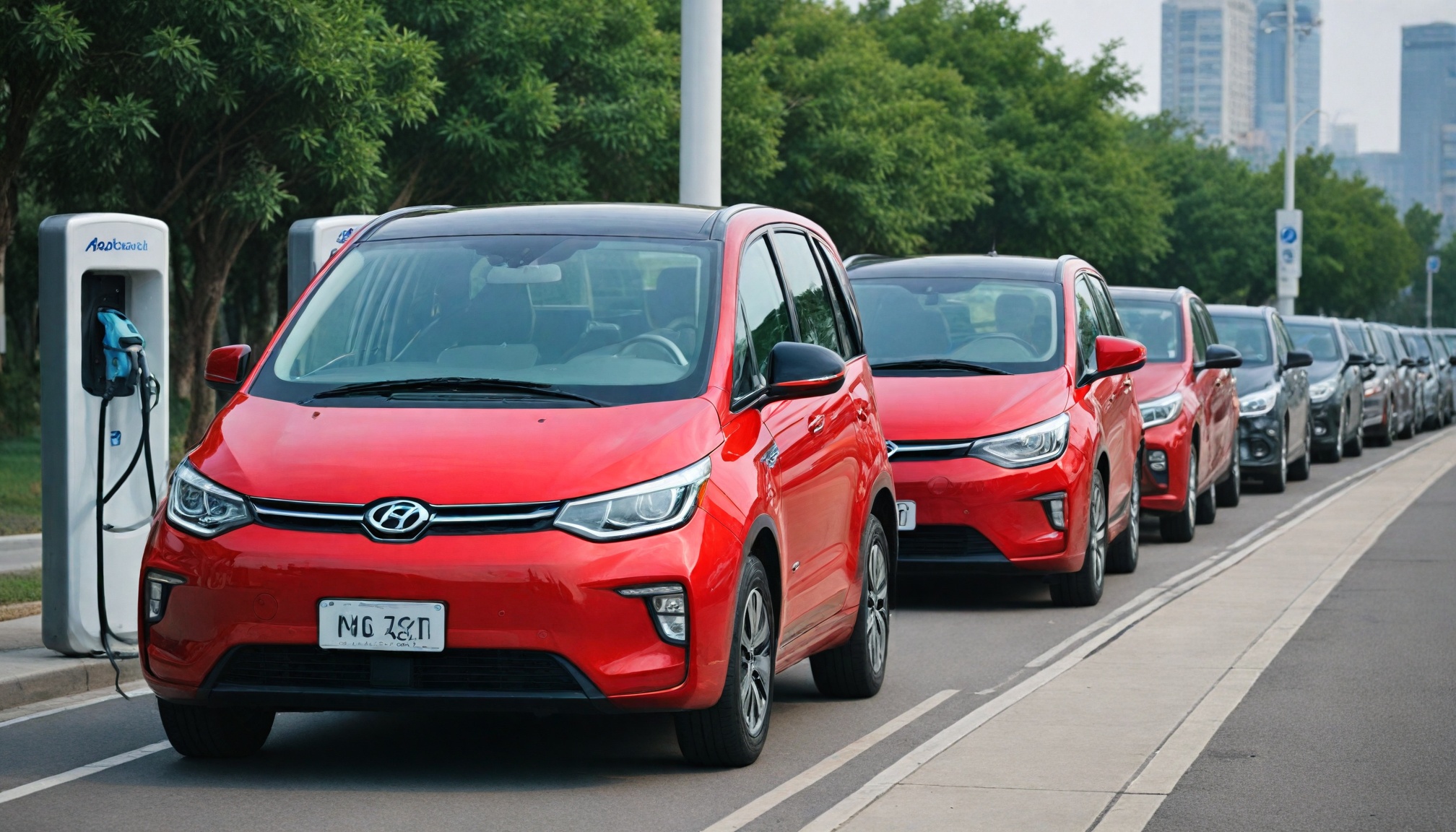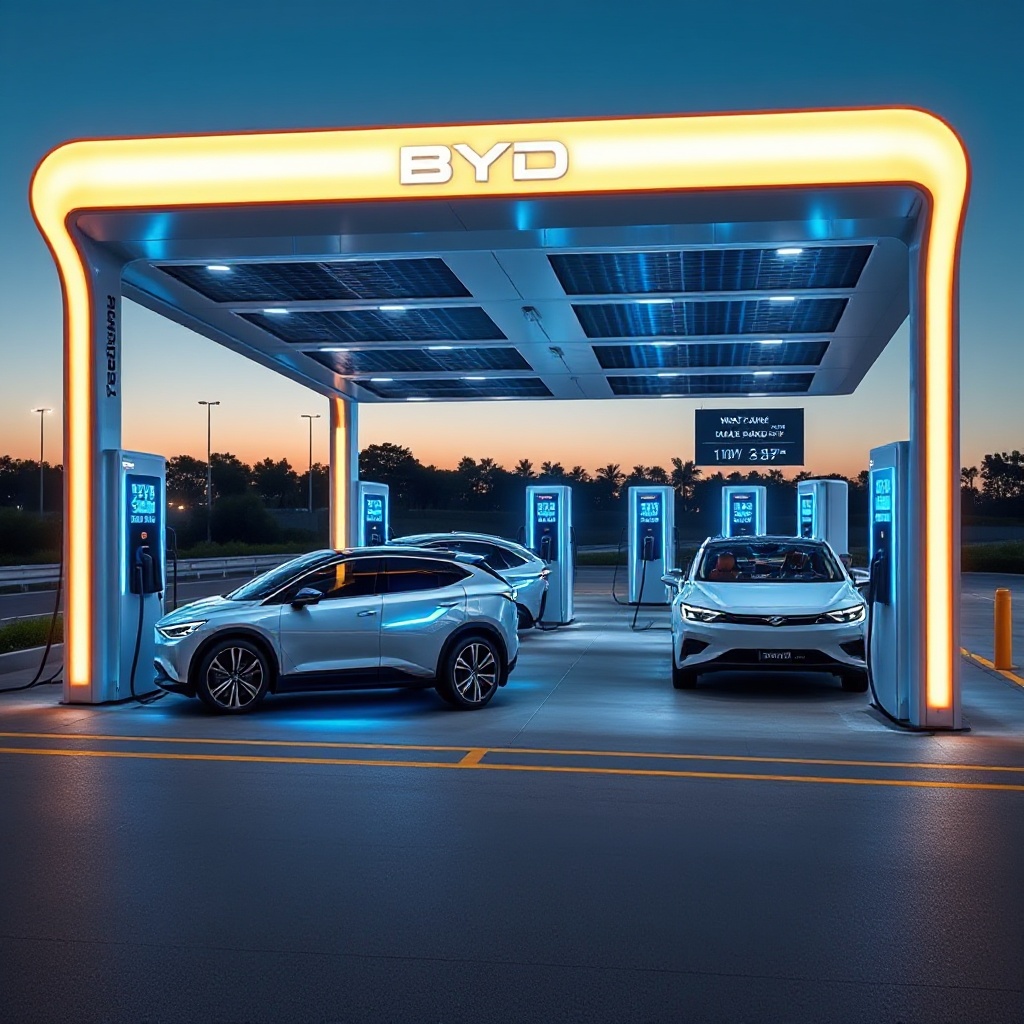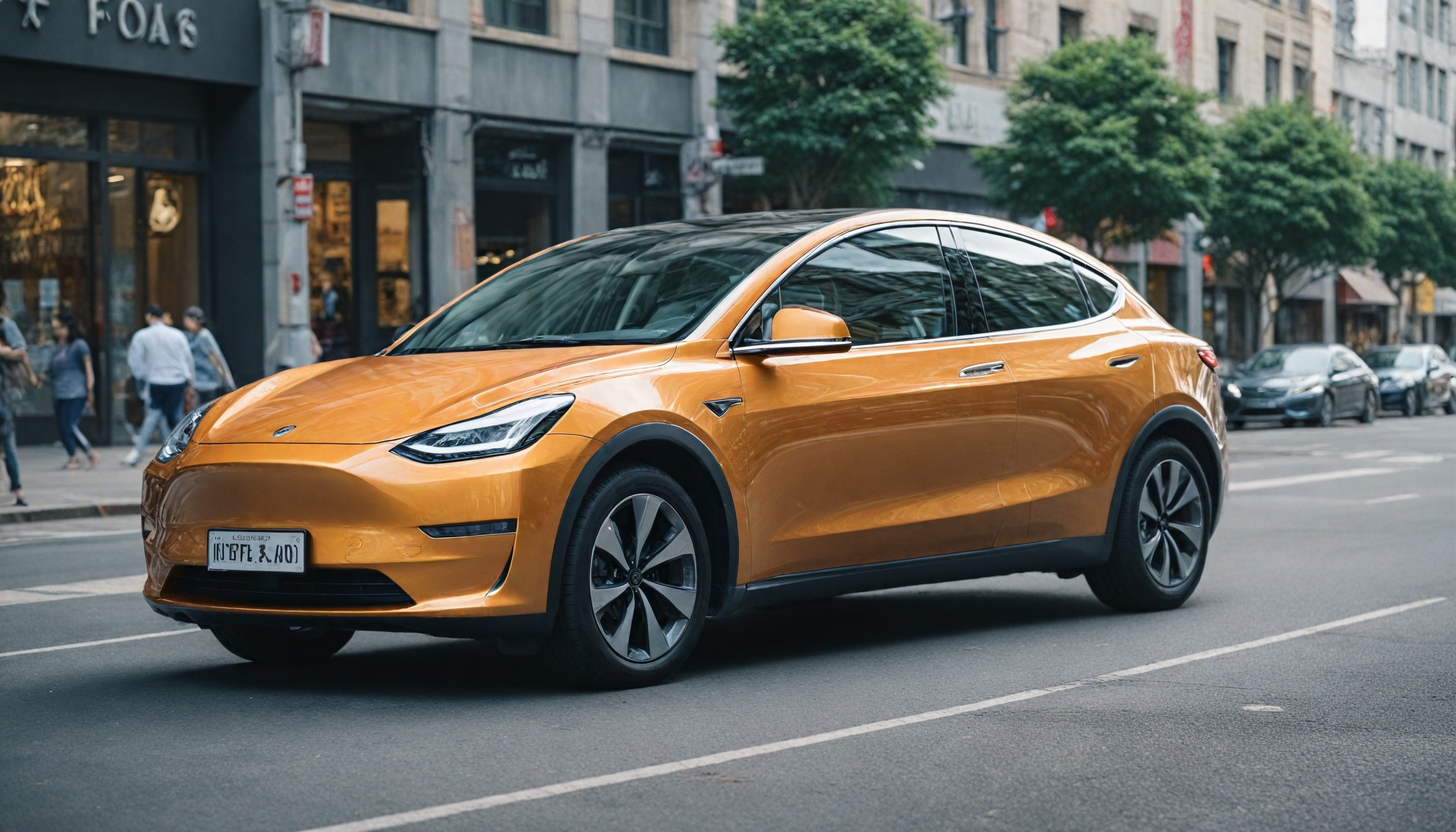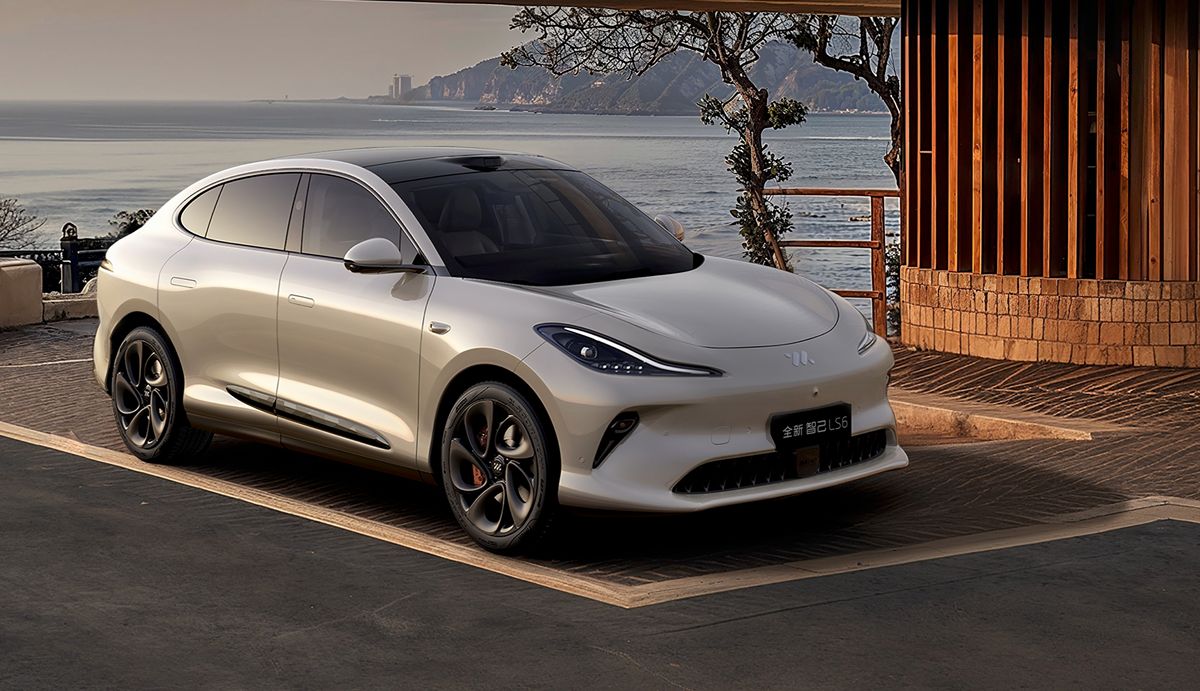
BYD to deploy 15,000 megawatt EV chargers across China, enabling 400km range in just 5 minutes—revolutionizing electric mobility and eliminating charging anxiety.

Drivetech Partners
BYD's ambitious plan to deploy 15,000 megawatt-level EV chargers across China represents the largest ultra-fast charging infrastructure project in the world. This unprecedented expansion promises to transform the electric vehicle landscape by reducing charging times to just minutes, potentially eliminating one of the biggest barriers to widespread EV adoption.
Key Takeaways
BYD's partnership with Xiaoju Charging and Xindietu will deploy 15,000 megawatt chargers across China, creating the world's largest high-power charging network
Each 1 MW charger can add 400 km of range in just 5 minutes, dramatically reducing typical charging stops from 30+ minutes to the time of a coffee break
BYD's Han L sedan and Tang L SUV models are already compatible with megawatt charging, with over 21,000 units sold in April 2025 alone
The initiative directly addresses charging anxiety, particularly benefiting high-utilization vehicles like taxis and ride-sharing services
Significant challenges remain, including grid capacity limitations and the need for substantial infrastructure upgrades to support widespread megawatt charging
BYD's Megawatt Charging Revolution: 15,000 Super-Fast Chargers Set to Transform China's EV Landscape
BYD has announced a game-changing partnership with Xiaoju Charging and Xindietu (LongShine) to deploy an incredible 15,000 megawatt-level EV chargers across China. This collaboration represents the largest ultra-fast charging infrastructure project globally, with Xiaoju Charging (connected to ride-hailing giant Didi) building 10,000 chargers and LongShine/Xindietu constructing 5,000. Each unit delivers a remarkable 1 MW (1,000 kW) of power with 1,000V/1,000A output, far exceeding typical fast-charging capabilities.
This massive expansion builds upon BYD's existing network of over 500 stations operating in more than 200 cities, dramatically accelerating their earlier commitment to build 4,000 stations. The scale and speed of this rollout positions China at the forefront of next-generation charging technology and sets a new global benchmark for EV infrastructure development.

Game-Changing Charging Speed: 400 km in Just 5 Minutes
The most remarkable aspect of BYD's megawatt charging system is its extraordinary speed. These chargers enable compatible EVs to gain up to 400 km (about 250 miles) of range in just 5 minutes. This translates to approximately 2 km of range added per second—a revolutionary leap that fundamentally changes the EV charging experience.
BYD's innovative "dual-gun charging" capability nearly doubles power output, reducing charging times by 70% compared to current standards. Even with a single charging gun, charging time is reduced by 45% compared to traditional fast charging. This shrinks typical EV charging stops from over 30 minutes to just 5 minutes, finally approaching the convenience of traditional fuel stops.

BYD's Technology Advantage: Proprietary Solutions for Mass-Market Adoption
At the heart of this initiative is BYD's proprietary "smart voltage boosting" technology, which ensures compatibility across major public fast-charging platforms. The company's innovative "Super e-Platform" powers flagship 1 MW-compatible vehicles: the Han L sedan and Tang L SUV. Both models have seen strong market response, with 10,483 Han L and 11,406 Tang L models sold in April 2025 alone.
The market has responded enthusiastically, with over 40,000 total Han and Tang family sales in a single month—uptake clearly fueled by the charging convenience these vehicles offer. BYD's strategy includes expanding megawatt compatibility to future models, which will accelerate mass-market access to ultra-fast charging technology.
Strategic Partnerships Creating an Unprecedented Charging Network
BYD's partnership strategy leverages Xiaoju Charging's access to over 90% of China's public charging stations and LongShine/Xindietu's coverage in more than 400 cities across China. This collaborative approach allows for rapid scaling and comprehensive coverage that a single company couldn't achieve alone.
The network aims to fully cover both city centers and highway corridors, supporting ride-hailing services, private vehicles, and commercial fleets. The initiative is creating the world's most extensive high-power charging infrastructure, positioning China as the global leader in EV charging technology and implementation.

Addressing the Primary Barrier to EV Adoption: Charging Anxiety
The 5-minute charging capability directly addresses the major consumer concern of charging time. This breakthrough effectively eliminates range anxiety by enabling quick top-ups comparable to refueling gas vehicles. The value is particularly significant for ride-hailing and commercial drivers who lose income during charging stops.
BYD's approach positions ultra-fast charging as the key catalyst for mainstream EV adoption, focusing on practical solutions for everyday drivers rather than just premium vehicle owners. By addressing this fundamental concern, BYD is removing perhaps the biggest psychological barrier to widespread electric vehicle adoption.
Grid and Infrastructure Challenges of Megawatt Charging
Despite its advantages, each charger's 1 MW draw places substantial load on the power grid. Widespread implementation requires significant grid upgrades, smart load management, and possible integration of distributed energy resources to maintain stability.
These high-voltage, high-current systems need careful site selection and substation reinforcement. Urban deployment requires coordination with city governments, real estate developers, and utilities. The massive upfront investment needed means that scalability depends on lowering installation and operational costs through economies of scale and technological advancements.
China's Competitive Advantage in Ultra-Fast Charging Technology
Megawatt charging is expanding globally, especially for commercial trucks. Competitors include Huawei (developing a 1.5 MW charger for trucks) and Tesla (with its 750 kW Supercharger for the Semi). Chinese manufacturer Zeekr has also introduced a 1.2 MW liquid-cooled charger for passenger cars.
BYD's "dual-gun" 1 MW approach stands out in enabling both passenger and commercial vehicles to benefit from ultra-fast charging. Through this massive infrastructure project, China is positioning itself as the global leader in next-generation charging technology, giving its EV manufacturers a significant competitive advantage in both domestic and international markets.
Implications for the Future of Urban and Highway Mobility
The rollout of megawatt charging enables seamless long-distance travel with short, convenient charging breaks. This technology transforms both daily commutes and intercity travel patterns, making EVs viable for high-utilization scenarios like taxis, ride-sharing, and delivery fleets.
There's also potential to reshape urban design as charging infrastructure becomes more compact and efficient. By creating the foundation for a fully electrified transportation ecosystem in China's major urban centers, BYD and its partners are accelerating the transition away from fossil fuels and toward a cleaner, more sustainable mobility future.
Sources
KrASIA - BYD expands megawatt charging network
Electrive - BYD expands megawatt charging for cars in China
The Driven - BYD to roll out 15,000 super fast 1 MW electric vehicle chargers
CarNewsChina - BYD to roll out 15,000 megawatt fast chargers across China in new partnership push
Electrek - BYD commits to deploying 15,000 megawatt chargers across China


